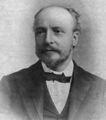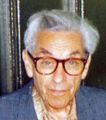Template:Selected anniversaries/September 20: Difference between revisions
No edit summary |
No edit summary |
||
| (44 intermediate revisions by the same user not shown) | |||
| Line 1: | Line 1: | ||
<gallery> | <gallery> | ||
||1519 | ||1519: Ferdinand Magellan sets sail from Sanlúcar de Barrameda with about 270 men on his expedition to circumnavigate the globe. Pic. | ||
|| | ||Three Brothers Jewel = The jewel is described in a list of items delivered to Mary as "a great pendounte bought of the ffowlkers in fflaunders havinge three lardge ballaces set without foyle, one lardge pointed diamounte and iiij lardge perles, whereof one is pendaunte". Pic. | ||
|| | ||1614: Martino Martini born ... Jesuit missionary, cartographer and historian, mainly working on ancient Imperial China. Pic. | ||
|| | ||1674: Eustachio Manfredi born ... mathematician, astronomer and poet. Pic. | ||
|| | ||1796: Juan José Elhuyar dies ...chemist and mineralogist ... with his brother Fausto Elhuyar, first to isolate tungsten in 1783. Pic search. | ||
|| | ||1804: Pierre François André Méchain dies ... astronomer and surveyor who, with Charles Messier, was a major contributor to the early study of deep sky objects and comets. Pic. | ||
|| | ||1819: Frederick Ellsworth Sickels born ... inventor, cut-off valve for steam engines. Pic search art: https://artsandculture.google.com/entity/m0bmgp82 and https://www.invent.org/inductees/frederick-ellsworth-sickels | ||
|| | File:James Dewar.jpg|link=James Dewar (nonfiction)|1842: Chemist and physicist [[James Dewar (nonfiction)|James Dewar]] born. He will invent the vacuum flask, which he will use in conjunction with extensive research into the liquefaction of gases. | ||
|| | ||1861: Frank Nelson Cole born ... mathematician. Pic. | ||
||1826: Giovanni Battista Donati dies ... astronomer. He was a pioneer in the spectroscopic study of the stars, the Sun, and comets. Pic. | |||
||1842: Mathematician Alexander Wilhelm von Brill born. Chasles–Cayley–Brill formula; Brill–Noether theory. Pic. | |||
||1876: Carleton Ellis born ... inventor and pioneer in the field of organic chemistry. He is the forgotten father of margarine, polyester, anti-knock gasoline, paint and varnish remover Pic search. | |||
||1882: Charles Auguste Briot dies ... mathematician who worked on elliptic functions. The Académie des Sciences awarded him the Poncelet Prize in 1882. Pic. | |||
||1887: Erich Hecke born ... mathematician. Pic. | |||
||1895: Walter Dubislav born ... logician and philosopher of science. Pic search. | |||
||1903: Mathematician Frank Nelson Cole famously made a presentation to a meeting of the American Mathematical Society where he identified the factors of the Mersenne number 267 − 1, or M67. Pic. | |||
File:Vera_Faddeeva.jpg|link=Vera Faddeeva (nonfiction)|1906: Mathematician [[Vera Faddeeva (nonfiction)|Vera Faddeeva]] born. Faddeeva will pioneer the field of linear algebra; her ''Computational Methods of Linear Algebra'' (1950) will be widely acclaimed. | |||
||1906: Sir Philip Stuart Milner-Barry born ... chess player, chess writer, World War II codebreaker and civil servant. He represented England in chess both before and after World War II. He worked at Bletchley Park during World War II, and was head of "Hut 6", a section responsible for deciphering messages which had been encrypted using the German Enigma machine. Pic. | |||
||1915: Lee Lorch born ... mathematician and activist. Pic search. | |||
||1930: Richard Montague born ... mathematician and philosopher. Pic. | |||
||1939: Andrew Claude de la Cherois Crommelin dies ... astronomer of French and Huguenot descent who was born in Cushendun, County Antrim, Ireland. He worked at the Royal Greenwich Observatory and went on several solar eclipse expeditions. | |||
||1949: Leonarde Keeler dies ... co-inventor of the polygraph. Pic. | |||
||1954: First successful FORTRAN program run by Harlan Herrick of IBM. | |||
||1971: Giorgos or George Seferis dies ... Greek poet-diplomat. He was one of the most important Greek poets of the 20th century, and a Nobel laureate. He was a career diplomat in the Greek Foreign Service. Pic. | |||
||1976: Professor Nazım Terzioğlu dies ... mathematicians in Turkish academia. Pic. No birth date. | |||
File:Petrozavodsk phenomenon photo copy.jpg|link=Petrozavodsk phenomenon (nonfiction)|1977: A series of celestial events occurs, with sightings reported over a vast territory, from Copenhagen and Helsinki in the west to Vladivostok in the east. It is commonly known as the [[Petrozavodsk phenomenon (nonfiction)|The Petrozavodsk phenomenon]] after the city of Petrozavodsk in Russia (then in the Soviet Union), where a glowing object which showered the city with numerous rays was widely reported. The nature of the phenomenon is disputed. | |||
File:Paul Erdős.jpg|link=Paul Erdős (nonfiction)|1996: Mathematician and academic [[Paul Erdős (nonfiction)|Paul Erdős]] dies. Erdős firmly believed mathematics to be a social activity, living an itinerant lifestyle with the sole purpose of writing mathematical papers with other mathematicians. | |||
||2000: The United Kingdom's MI6 Secret Intelligence Service building is attacked by individuals using a Russian-built RPG-22 anti-tank missile. | |||
</gallery> | </gallery> | ||
Latest revision as of 13:03, 7 February 2022
1842: Chemist and physicist James Dewar born. He will invent the vacuum flask, which he will use in conjunction with extensive research into the liquefaction of gases.
1906: Mathematician Vera Faddeeva born. Faddeeva will pioneer the field of linear algebra; her Computational Methods of Linear Algebra (1950) will be widely acclaimed.
1977: A series of celestial events occurs, with sightings reported over a vast territory, from Copenhagen and Helsinki in the west to Vladivostok in the east. It is commonly known as the The Petrozavodsk phenomenon after the city of Petrozavodsk in Russia (then in the Soviet Union), where a glowing object which showered the city with numerous rays was widely reported. The nature of the phenomenon is disputed.
1996: Mathematician and academic Paul Erdős dies. Erdős firmly believed mathematics to be a social activity, living an itinerant lifestyle with the sole purpose of writing mathematical papers with other mathematicians.



